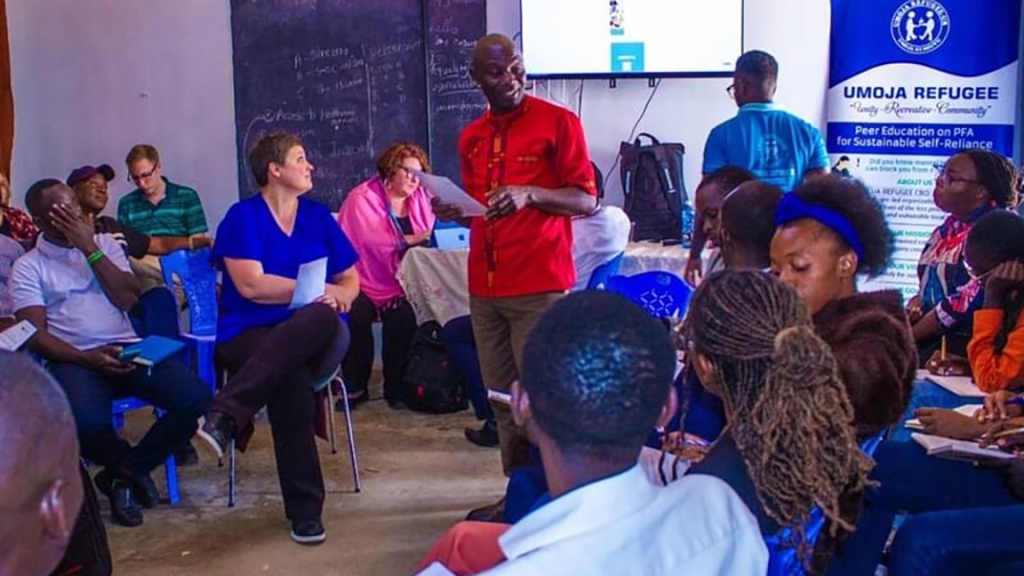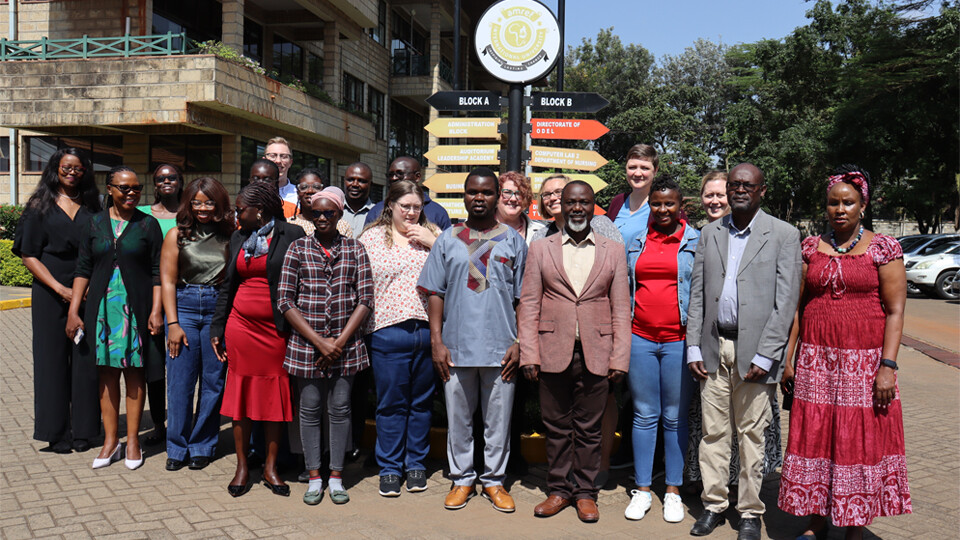Arts and Sciences, July 18, 2024
From Nebraska to Kenya, project aims to fulfill a Grand Challenge
A group of University of Nebraska–Lincoln researchers and students is in Nairobi, Kenya, to learn about forced migration-affected persons, families and communities as part of the Pamoja Project.
With funding from a Grand Challenges Planning Grant, the UNL team partnered with Amref International University and Moi University researchers as well as with Umoja Refugee Creative, a Nairobi-based refugee-led organization.
“Pamoja means ‘together’ in Kiswahili and is the bedrock of the project’s partnership approach,” Emira Ibrahimpasic, faculty member in global studies in the School of Global Integrative Studies, said. “The international team captures the spirit of the Grand Challenges by collaborating across campuses and disciplines to explore how to address forced migration inequities — a challenge faced by many new Nebraskans.”

The Umoja Refugee Group welcomed team members for a listening session.
Each member brings different areas of expertise and perspectives, enabling the team to tackle the problem from a variety of avenues. Julie Tippens, faculty member in the College of Education and Human Sciences, leads as principal investigator. Jentry Barrett of Nebraska Extension heads the Outreach and Engagement Core; and Sonya Turkman, faculty member in the College of Architecture, leads the Research and Creative Activity Core. Representing the College of Arts and Sciences, Ibrahimpasic leads the Teaching and Training Core with Julia Reilly and Courtney Hillebrecht, both from the Human Rights and Humanitarian Affairs program.
Five students from UNL accompanied the researchers to Kenya to learn about the roles of refugee-led organizations in humanitarian response. Three students from AMIU and three students from Moi University also joined the group.
The purpose of the trip was to meet with Kenyan collaborators, including Alice Lakati, Lucy Njiru and Patrick Okwarah from AMIU; Dulo Nyaoro from the Moi University Center for Peace and Reconciliation; and Jonas Ndayisenga from Umoja Refugee Creative. Research partners also study the physical and mental health of forcibly displaced communities and the policies that affect them.
Within the broader framework of humanitarian work and health, students were interested in exploring the influence of the built environment on wellbeing, mental health and psychosocial support, and local integration opportunities. The students are based at Umoja Refugee Creative to learn more about these topics and present their findings to the team, AMIU faculty and students, and refugee-led organization partners. The students are getting hands on experience in fieldwork and research in an international setting.
The Kenyan research partners will visit Nebraska in the spring of 2025. The UNL team is planning a symposium to share about migration-affected communities and lessons in localized humanitarian response to support communities in diverse settings.
The team will also take Kenyan partners to communities in Nebraska with high migration-affected populations to learn about the infrastructure and resources available and the experiences of these individuals and families. Nebraska is a key refugee resettlement location, and many forcefully displaced people/refugees are increasingly moving to rural towns across the state for employment. Kenya hosts more than 1.1 million displaced persons from neighboring countries due to conflict and climate change.
“Nebraska and Kenya are perfect partners because they both host several of the same refugee populations, and many Congolese, Somali and Sudanese refugees have reached Nebraska via Kenyan camps or cities,” Ibrahimpasic said.
The overall goal of the project is to create a team that can work across disciplines, institutions and countries, to help migration-affected communities thrive in their new host countries by breaking down silos that have previously made this more difficult.






